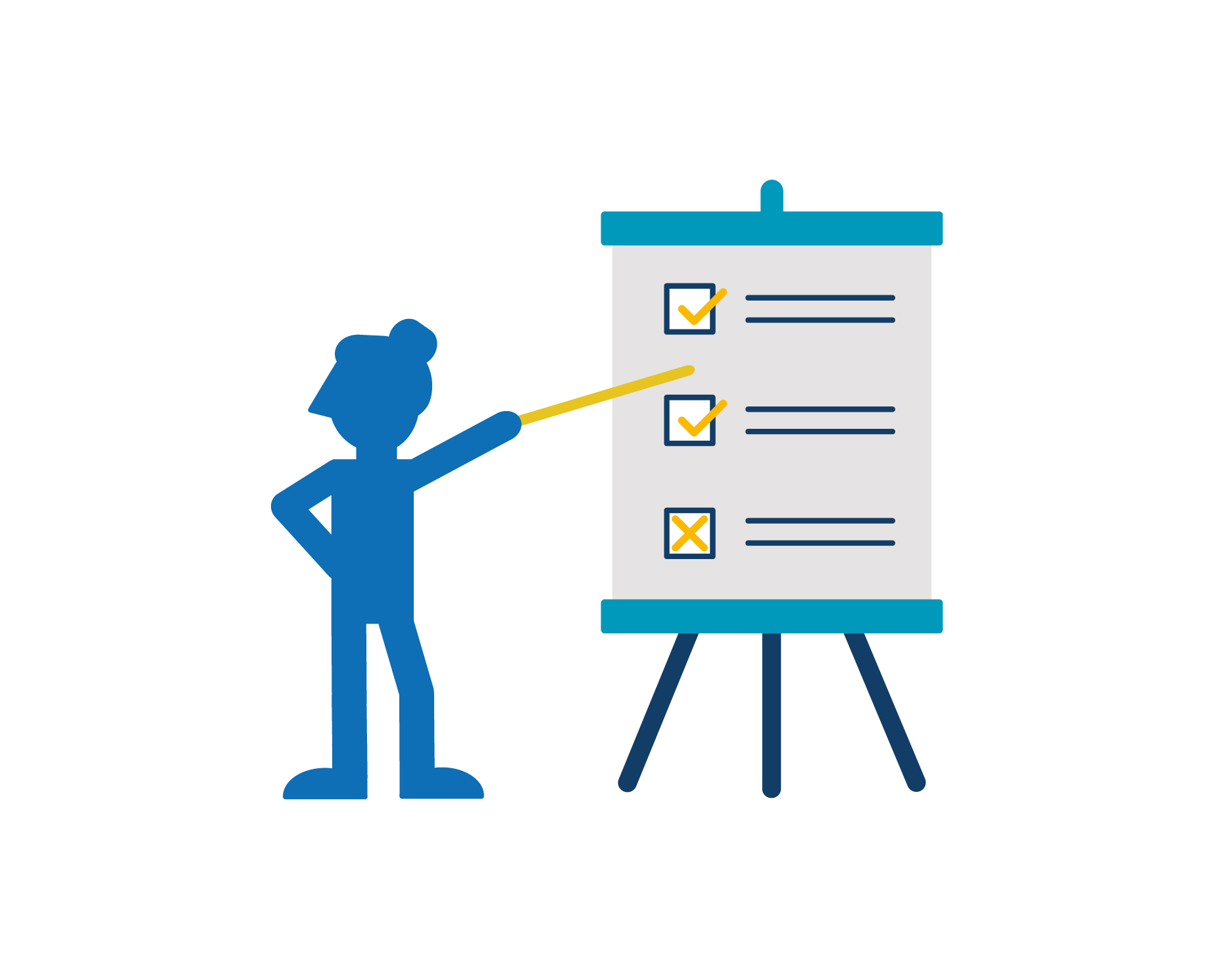
Welcome! This short course is designed to help you get the most out of keep.eu, the living repository of Interreg projects, partners, programmes and thematic information and documentation. Whether you're new to the platform or looking to deepen your understanding, this course will guide you through the key features and practical uses of keep.eu. In just a few pages, you can gain hands-on insights into how keep.eu can support your work, be it for policy-making, programme management, research or project development.
By the end of this course, you should be well equipped to use keep.eu for evidence-based analysis, better communication and smarter decision-making in the Interreg context.
in this short course you will have the opportunity to learn about:
- The types of data available in keep.eu, including projects, partners, programmes, documents and themes
- The structure and coverage of Interreg information across different programming periods
- The key dimensions for analysing Interreg’s scope, investment , and performance
- The kinds of insights keep.eu can support, for strategic planning, policy analysis and communication
- The available support resources and ongoing developments in the platform
This course is for you, if you:
- Work for Interreg or other cooperation programmes
- Are, or want to be, a project partner involved in European Union-funded cooperation projects
- Are a policy stakeholder seeking data for evidence-based planning and analysis
- Are a researcher, consultant or academic interested in Interreg’s scope and impact
- Are a communication professional looking to showcase results and good practices

We offer facilitation skills sessions at some of our trainings. This course has been developed as a preparation for the face-to-face trainings. It covers the basics of facilitation skills, and how they can help you achieve your objectives in teams.
By the ending of this short course, you will be able to:
- identifty barriers to effective communication;
- define what is meant by facilitation;
- identify the stages of group development and apprpriate facilitator interventions;
- outline stages for structuring a facilitated event
The main author of the course is Lisa Malcom (Interact’s external expert) who prepared the first version. This version of the course is slightly expanded and adjusted to suit this type of online learning platform.
Who is it for
This course is aimed mostly at those new to facilitation in a programme officer role. Nevertheless, more experienced facilitators might also benefit from some of the frameworks presented in this course.
- Trainer: Admin Moodle

How much of your working day do you spend writing to people, sending them information or asking them for information?

Your time is one of the most important resources you have, so you should use it wisely and well. When you write to someone, you write with a specific aim in mind. You are writing to get a result from the person reading your text. You hope the time you spend writing will be time well spent.
What you write and how you write
Getting the desired result from your text depends on two things - what you write and how you write. But even if you know the topic you are writing about very well, you don't always get the result you had hoped for, do you?
Often, the reason for this is that we have not thought enough about how to present the information for our reader.
This Plain Language course will show you how to write in a simpler, clearer and more direct style than you do today. Writing in this way can make your texts more reader-friendly. A reader-friendly text means your information will be more easily understood and remembered by your reader. For you, this means a better return on the time that you invested in writing.

Lobbying is way too complicated! Lobbying is useless! My project results will never get to the EU institutions and policy-makers. Why should I bother lobbying? Lobbying is after all just a communication exercise….
It is very common to hear those kind of comments from project partners when it comes to lobbying. But does this have to do more with their lack of understanding about how things work at EU level? Or could it just be their lack of knowledge about how to draft a lobbying strategy? Or a lack of resources for doing so, such as not having the time to get Interreg results out of the drawer and let the relevant policy-makers know about them?
What if we tell you that lobbying is not as complex as it looks? What if we tell you that your results could really contribute to shaping EU policies in the area of competence that matters to you?
In this course you will learn:
- About the basics of lobbying at EU level: what it is and why do it;
- Who are the main actors involved in that process;
- How EU decisions are made;
- How to lobby and which tools could be useful to you.
You will also get practical advice and guidance on how to draft a lobbying strategy, as well as many useful links to help you through that process.
This is course is for you if:
- Are a project developer with results that can potentially influence EU policy and want to figure out how to achieve this through lobbying.
- Work for an Interreg programme and want to help those projects reach the EU institutions and have an impact on EU policy.

Developing good presentation skills is as important as having the knowledge and expertise to do your job. Presenting information clearly and effectively is a key skill to get your messages across. Not only can good presentation skills help us when we need to give presentations to a room full of people, but also when we’re talking to customers or explaining a new idea to our colleagues. Interact is offering the presentation skills sessions at some trainings we organise. This course has been developed as a preparation for the face-to-face trainings. It covers the basics of designing a presentation and how this can help you to communicate complex topics effectively.
The main author of the course is Lisa Malcom (Interact’s external expert) who prepared the first version of it. This version of the course is slightly expanded and adjusted to this type of online learning platform.
Who is it for
This course is aimed mostly at those new to presentations. Nevertheless also more experienced presenters might benefit from some frameworks presented in this course.

Interreg projects have done a lot of good for Europe. They have brought Europeans closer together by addressing shared problems and encouraging cooperation towards common goals. If you and your organisation want to contribute to this legacy, Interreg offers a good opportunity to get some of your passion projects funded.
Interreg programmes search for suitable projects by launching calls for proposals. The programmes typically receive many proposals, but not all of them can get funding. To qualify for funding, the projects have to fulfil certain quality requirements and, most importantly, they have to contribute to Interreg's (and the programmes') policy objectives.
the 4 interreg project characteristics
 |
This course is about the 4 characteristics that Interreg projects must have in order to qualify for funding. Without all 4 of them, a proposed project has zero chance of receiving funding.
Understanding these characteristics will not only help you avoid a lot of frustration in the application process, but it will also increase the chances of your proposal being accepted, and raise the overall quality of your project. |
In this course you will learn:
- How the EU cohesion policy, Interreg's policy objectives, the 4 strands of Interreg programmes and the Interreg programmes in general relate to these core characteristics.
- About the 4 core characteristics and how they translate into Interreg projects.
- What they mean in practice for project developers.
This course is for you, if you:
- Are a project developer who has no (or little) experience in developing and managing projects funded by Interreg programmes, and want to understand which characteristics Interreg projects must have.
- Work in Interreg programmes (especially if you are new to the Interreg world) and want to learn how to help project developers understand the basic characteristics of all Interreg projects.
Let's dive in.
Are you trying to get a solid grasp of the regulatory provisions for the 2021-2027 period but finding the abundance of legal texts time-consuming to read and hard to understand from the first read?
I want to assure you that you are not alone. Even though the legislator has done a remarkable job on simplifying and reducing the length of the regulatory package for 2021-2027 (Common Provisions Regulation and Interreg Regulation are only (!) 613 pages long), I bet you would not say “no” to a complete and comprehensive summary of all the new elements introduced in the new regulations for Interreg. So if you do not want to spend numerous hours making your way through the pages of the legal texts, you are in for a treat.
What does this course offer?
- A complete, comprehensive and concise introduction to new elements in the regulatory package for the 2021-2027 period for Interreg programmes;
- short videos with Interact colleagues who will tell you more about their areas of expertise (and who are your contact points for more questions!);
- hints for additional material if you want to learn about certain topics in more detail;
- legal references to each area of expertise;
- exercises and quizzes to facilitate your learning and understanding of the subject.
This course is for you if you:
- are involved on a daily/ frequent basis in the preparation, monitoring, managing, implementation, controlling and auditing of an Interreg programme; i.e., colleagues from joint secretariats, managing authorities, monitoring committees, national authorities, controllers, auditors;
- are curious about the novelties in the new regulatory package for the 2021-2027 period;
- have just joined an Interreg programme or have been there for a while - new elements are new for all, no matter how long you have been with an Interreg programme.
Why is it a good idea to spend a few hours on this course?
- This course is a one-stop-shop for a new set of regulations for the 2021-2027 period for Interreg programmes - if you want to learn about the new elements and look at the bigger picture, you’re in the right place.
- This course is designed to be your daily reference point - if you need to find information fast and learn in an easy-to-understand language about a certain topic instead of using “Ctrl +F”, hoping to get a match in the legal texts, then this is the place to be.
- This course saves you from switching between different documents (CPR, Interreg, ERDF, IPA III, NDICI Regulations) and you want to find out what’s new about the topic in one place.
What you will not find in this course…
- Provisions that remained unchanged from the 2014-2020 period (but we have got you covered - check out this comparison table of Interreg Regulation 2021-2027 and 2014-2020!);
- in-depth explanation of the topics - if you want to learn more, Interact has produced various resources for you to make use of - for those who are eager, you will find all the references in the course.
What will you get after you have completed the course?
- Confidence: you will be comfortable discussing how good it was in the past, and why different changes were introduced.
- Knowledge: you will not have to frantically skim through regulations when you hear things like “small project fund”, “technical assistance flat rate”, “output and result indicators”.
- Network and community: you will meet Interact colleagues working on certain topics and you will get a chance to exchange with your peers who are taking/ have taken the course in the forum exchanges.
- Where to find more information: you will get access to resources to deepen your knowledge in various areas and learn how and which Interact communities to join for further exchanges.
Convinced? Then dive into the course and explore the novelties!
- Trainer: Lamprini Tsoli

